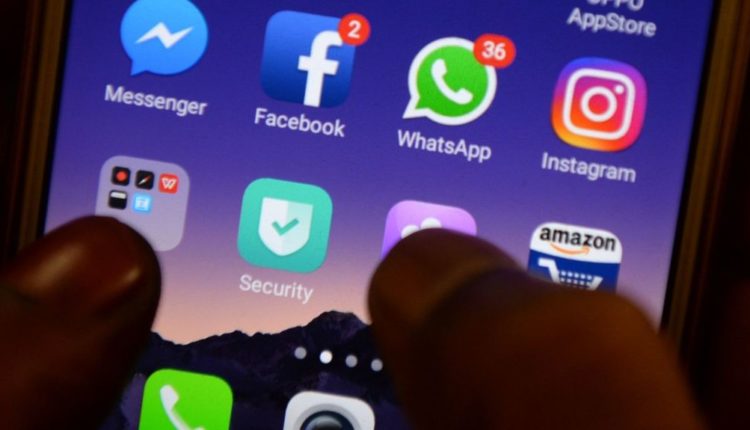Don’t Get Stuck on Social Media: Take Control
Social media can be a balm to soothe the stressed mind. Unfortunately, it can also be the devil and not really even in disguise.
Nearly four billion people use social media all over the world. According to data from Oberlo, this number jumped by 920 million over the last few years. If you are reading this on your phone, you are one of the 9 out of 10 who use mobile devices to do so.
Perhaps you are also close to the average user spending nearly 3 hours a day on social media (Statista). As an educator, I see students in my class using social media while they wait, while they walk, and yes, sometimes while in class with me. As a father, I see my kids often lost in the tantalizing world of their phones.
Is this a problem?
While research shows a strong association between the release of the iPhone and rates of loneliness and depression in children (see a recent study in the Journal of Adolescence by Twenge et. al,) there is no definitive data that phone use causes loneliness and other health problems.
The association is very strong, but few experimental studies varying social media use to test differential health outcomes have been conducted. That’s no surprise as those studies are hard to do, but the associations give us cause for concern.
As schools, colleges, and universities start up in earnest, it is important to note that social media use deprives many of us, parents, teachers, students alike, of sleep.
Many individuals use social media at the expense of doing other tasks but also of participating in healthy activities such as sleeping and exercising. Perhaps the worst offender and a true literal case of life and death is using social media while driving.
Is it so hard to just say no to social media?
There are many activities we know we should do more of (e.g., physical activity) and many activities we know we should do less of (e.g., eat poorly). Whether it is procrastination from work, or not doing what we should be, the common underlying psychological mechanism is self-regulation.
We need to be able to control our behavior. Yes, the flesh may be weak but the spirit is willing. We need to be able to strengthen our ability to control our desires (often to do unproductive activities) to focus on healthy and productive activities.
A new study just published this month provides a solution
Sternberg and colleagues (2021) conducting a complex experiment. The researchers selected 100 images from the internet that contained recognizable elements such as the Facebook icon and the unread-message icon.
A day before the study, the 30 participants in the study had their Facebook accounts deactivated. If a study is an experiment, there have to be at least two groups and the researchers manipulate what each group experiences so that any differences in participant behavior can be linked to what was manipulated.
In this study, participants were hooked up to an EEG machine (reading brain activity) and were then shown the internet icons/images. Half the participants experienced temptation—they were told to see social media images, think about social media, and entertain intentions to use social media.
The other half of participants were distracted—they were told to think about daily routines or shapes). The instructions trained the participants in self-regulation, either away from or towards social media. The study involved exposing the participants to the different images and measuring their brain activity and explicit desire to use their own Facebook profile.
Distraction wins
Participants in the distraction condition reported a lower desire to check Facebook. Distraction also caused the participants to pay less attention to the internet images during the study. Thanks to the wonders of neuroscience and measurement of brain wavelengths, the researchers also showed that the participants in the distracted condition showed less activity in the area of the brain concerned with working memory. The self-regulation of distraction actually had explicit and neural level changes.
While only the first of such studies, the results suggest that one way to reduce our time on social media is nipping the desire to switch to it in the bud. If you are working on a project and feel the desire to check social media (potentially diving down a rabbit hole you may only emerge from many minutes or an hour later), perhaps explicitly distracting yourself even briefly may be enough to keep you at work. Perhaps get up and walk around instead. Maybe occupy your mind with something else before returning to work.
Tempting yourself by thinking of social media and wondering about what you are missing may only make the desire stronger, a failure of self-regulation. In some ways, you need to change gears. The thoughts of social media may be a gear you get stuck in. Consciously thinking distracting thoughts may be what can shift that gear.
There is no doubt that social media, like movies and television, can be stress relief. Most of us needed a lot of relief over the last two years and may need more. The problem is that given the neural and psychological correlates of social media use, it could grow to a point making self-regulation harder and harder. We need to practice ways to change the gears for our mental health, productivity, and safety. This study provides promise in this regard.
Change that gear. Reclaim missing time!



